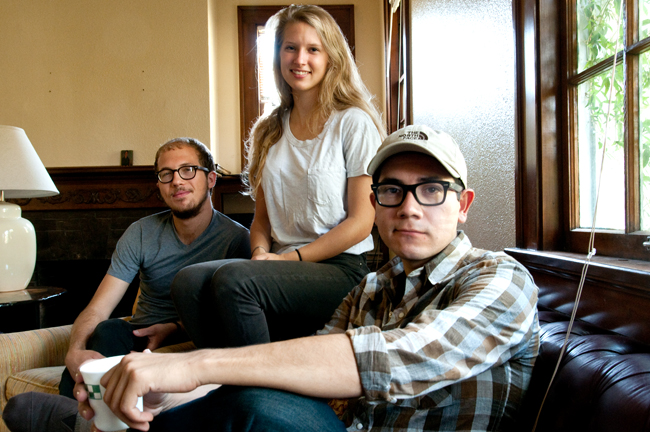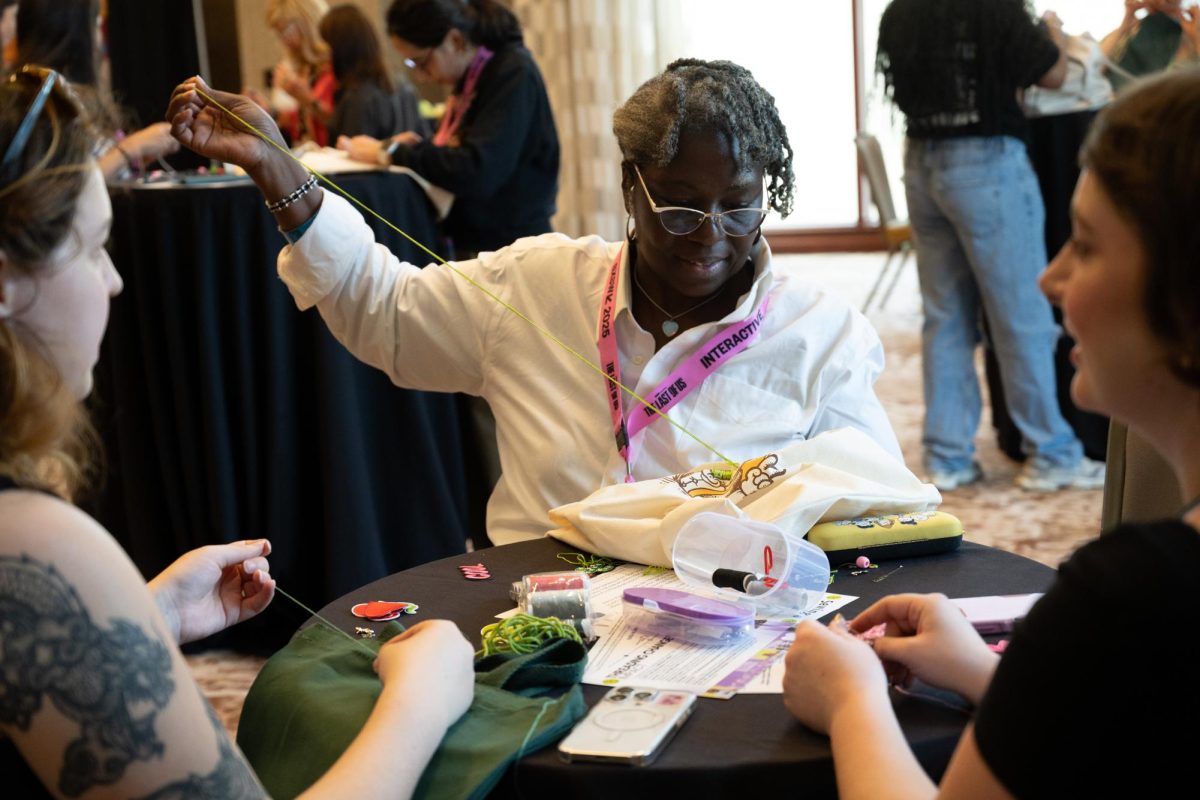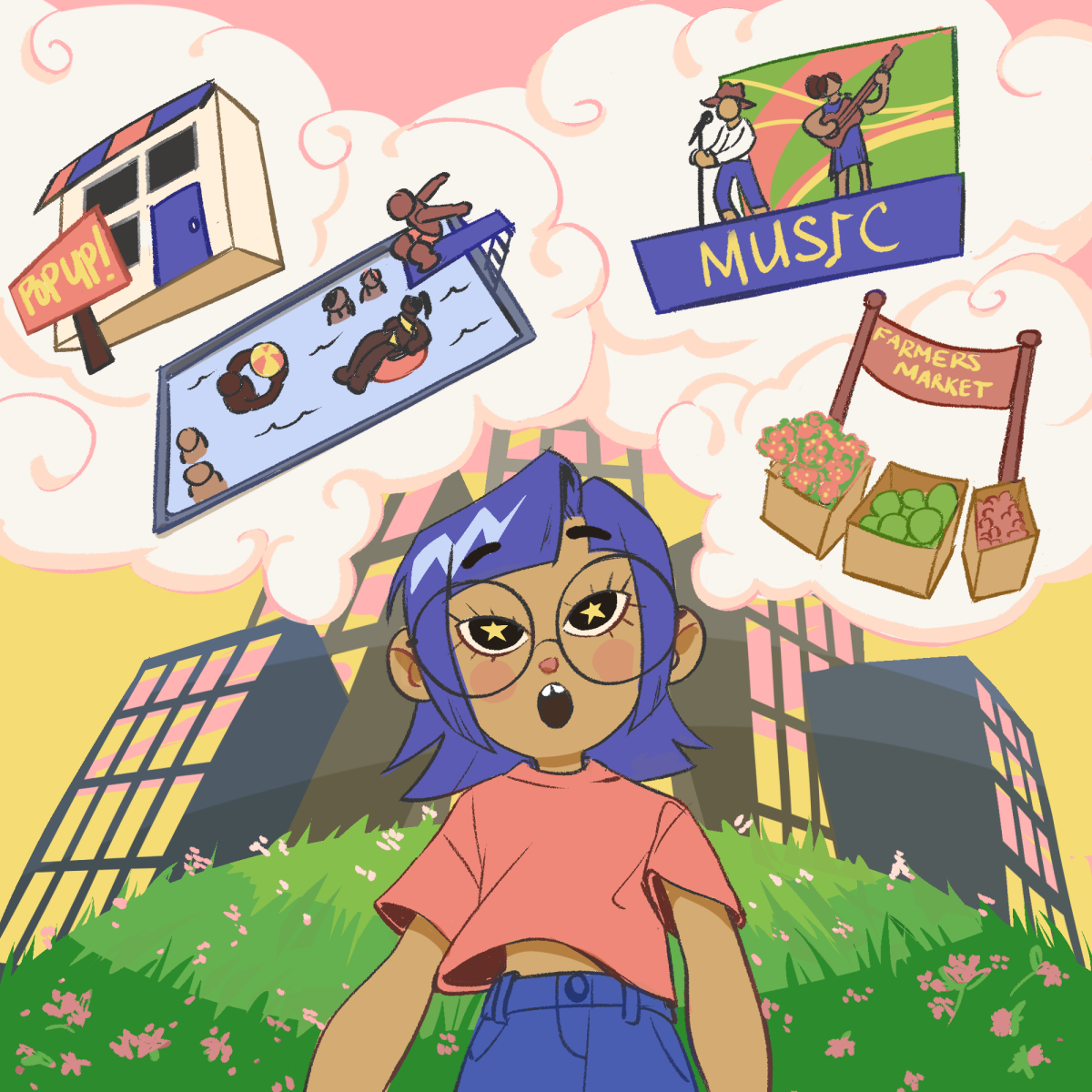The metaphorical tug-of-war between print literature enthusiasts and tech-savvy e-reader junkies is an especially concerning issue for Daniel Mejia, the founder and editor-in-chief of Foxing Quarterly.
Foxing Quarterly is the peculiar name of Austin’s newest literary journal, due to publish its first issue in early November. Mejia chose the name because of his deep appreciation for print literature.
“The name ‘Foxing’ comes from a term used for books when they’ve aged,” Mejia said. “Books get these red, fox-like spots on them when they become old.”
Mejia has made it his priority to offer the first issue of Foxing Quarterly in physical paper copies only out of his antiquated love and respect for the printed word. He said this endangered appreciation for the physicality of literature has also been instilled in Mejia’s unpaid team of volunteer editorial staff.
Foxing Quarterly’s editorial board is concerned that its ambitious goal to produce a printed publication will fall short in terms of fundraising. Unfortunately for the group of renaissance, print-loving editors, there’s more to producing a 152-page, perfectly bound journal than merely throwing a few short stories on the Internet so that they can disappear into the blogosphere.
Foxing Quarterly has a donation page on Kickstarter, a site dedicated to helping small projects raise money, to aid the journal in reaching its pledge amount of $8,000. But the publication is still considerably low on funds. The deadline for pledging is Oct. 11, and the journal has only managed to raise by press time around $3,200.
“If we don’t raise the money, we’ll still try our best to release something,” Mejia said. “[We’ll] do whatever we can to make it happen.”
Money may be dangerously low, but awareness certainly is not.
Foxing Quarterly has hosted several book swaps as well as more eclectic events, such as a Wes Anderson-themed costume party and book reading, to draw attention to the publication. The events have been successful thus far, especially the Wes Anderson party recently held at deputy editor Jane Robbins Mize’s home. Mize, an English junior, opened her North Campus home to quirky guests emulating the even quirkier characters from Anderson’s iconic films. Party attendees were encouraged to swap books as well as allow themselves to be entertained by the book readers and bands that gave performances.
Chase Weinacht, managing editor and UT alumnus, believes that inviting the public into the homes of the editors is beneficial in establishing an intimate connection with potential readers.
“I think reading is kind of a solitary activity,” he said. “But when you get people together who have read the same author’s work or the same journal, it’s a really personal connection.”
Aside from breathing life into the isolated act of reading, Foxing Quarterly has several other goals already in place.
“A big goal of Foxing’s is to promote a literary community,” Mize said.
The journal also aims to break the stuffy, pretentious standard established by other literary journals by including as many forms of printable works as possible. Poems, short stories and comics have all been submitted as of the extended Oct. 1 entry deadline and are currently under the review of the journal’s 12 editors. The publication encourages submissions of all artistic disciplines to ensure diversity.
Mejia said Foxing Quarterly’s ideas are solid and unique enough to satisfy various groups in Austin’s deep pool of quirky niche audiences, but at the publication’s current fundraising rate, a November publication will not be possible. Whether this is indicative of disinterest in anything that cannot be read electronically or poor fundraising efforts by the editorial staff is unclear.
Mejia and his fellow editors, after much debate, have chosen not to charge for entry to Foxing Quarterly’s events but will be forced to do so for their launch party to meet the pledge amount. They love being able to host book exchanges and parties for free because it draws awareness, but high party attendance won’t pay the bills.
“We will be printed,” Mize said. “We’ll just have to problem-solve.”
Printed on Wednesday, October 3, 2012 as: Local literary publication rising















